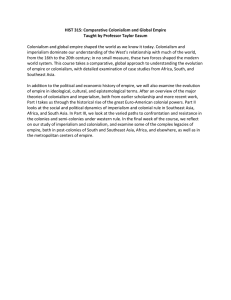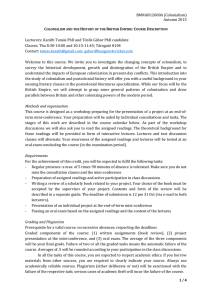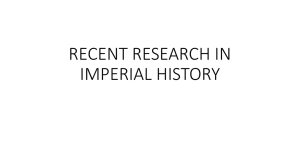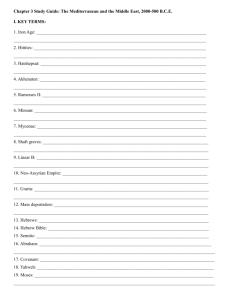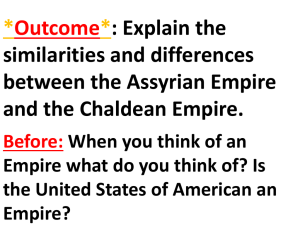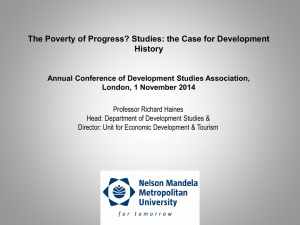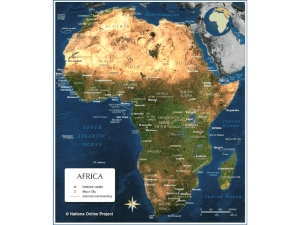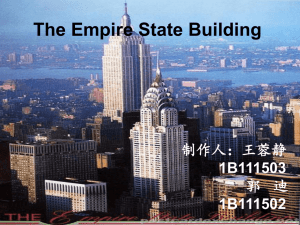Colonialism & Empire in SE Asia - Draper Program
advertisement
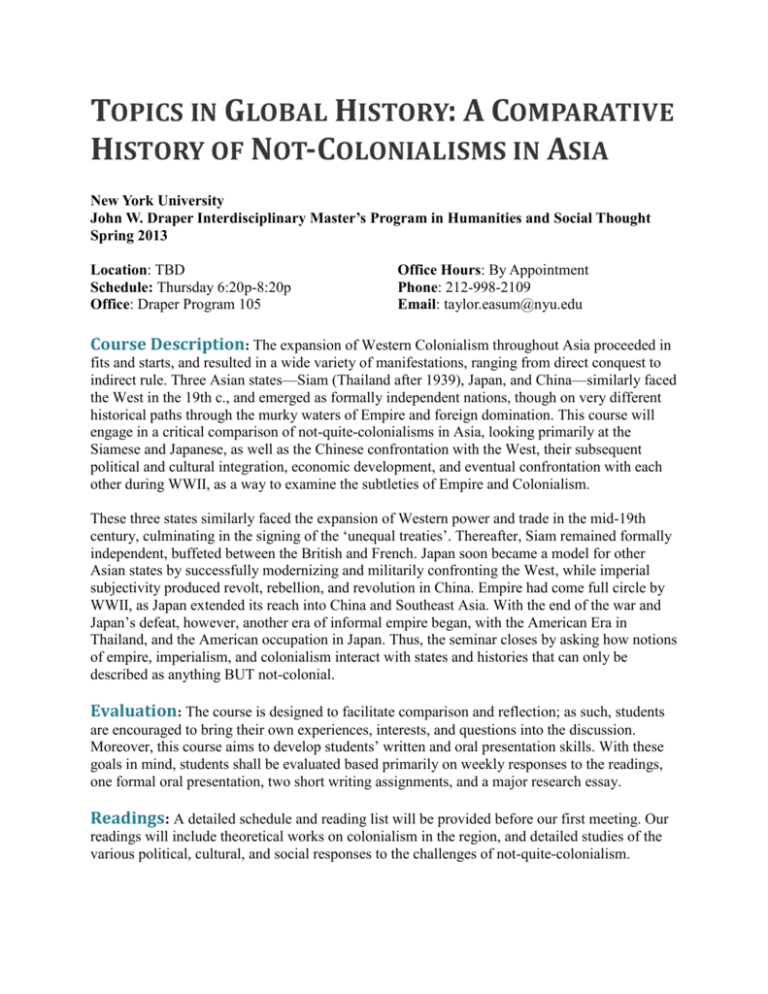
Topics in Global Histories Page 1 of 1 TOPICS IN GLOBAL HISTORY: A COMPARATIVE HISTORY OF NOT-COLONIALISMS IN ASIA New York University John W. Draper Interdisciplinary Master’s Program in Humanities and Social Thought Spring 2013 Location: TBD Schedule: Thursday 6:20p-8:20p Office: Draper Program 105 Office Hours: By Appointment Phone: 212-998-2109 Email: taylor.easum@nyu.edu Course Description: The expansion of Western Colonialism throughout Asia proceeded in fits and starts, and resulted in a wide variety of manifestations, ranging from direct conquest to indirect rule. Three Asian states—Siam (Thailand after 1939), Japan, and China—similarly faced the West in the 19th c., and emerged as formally independent nations, though on very different historical paths through the murky waters of Empire and foreign domination. This course will engage in a critical comparison of not-quite-colonialisms in Asia, looking primarily at the Siamese and Japanese, as well as the Chinese confrontation with the West, their subsequent political and cultural integration, economic development, and eventual confrontation with each other during WWII, as a way to examine the subtleties of Empire and Colonialism. These three states similarly faced the expansion of Western power and trade in the mid-19th century, culminating in the signing of the ‘unequal treaties’. Thereafter, Siam remained formally independent, buffeted between the British and French. Japan soon became a model for other Asian states by successfully modernizing and militarily confronting the West, while imperial subjectivity produced revolt, rebellion, and revolution in China. Empire had come full circle by WWII, as Japan extended its reach into China and Southeast Asia. With the end of the war and Japan’s defeat, however, another era of informal empire began, with the American Era in Thailand, and the American occupation in Japan. Thus, the seminar closes by asking how notions of empire, imperialism, and colonialism interact with states and histories that can only be described as anything BUT not-colonial. Evaluation: The course is designed to facilitate comparison and reflection; as such, students are encouraged to bring their own experiences, interests, and questions into the discussion. Moreover, this course aims to develop students’ written and oral presentation skills. With these goals in mind, students shall be evaluated based primarily on weekly responses to the readings, one formal oral presentation, two short writing assignments, and a major research essay. Readings: A detailed schedule and reading list will be provided before our first meeting. Our readings will include theoretical works on colonialism in the region, and detailed studies of the various political, cultural, and social responses to the challenges of not-quite-colonialism.
